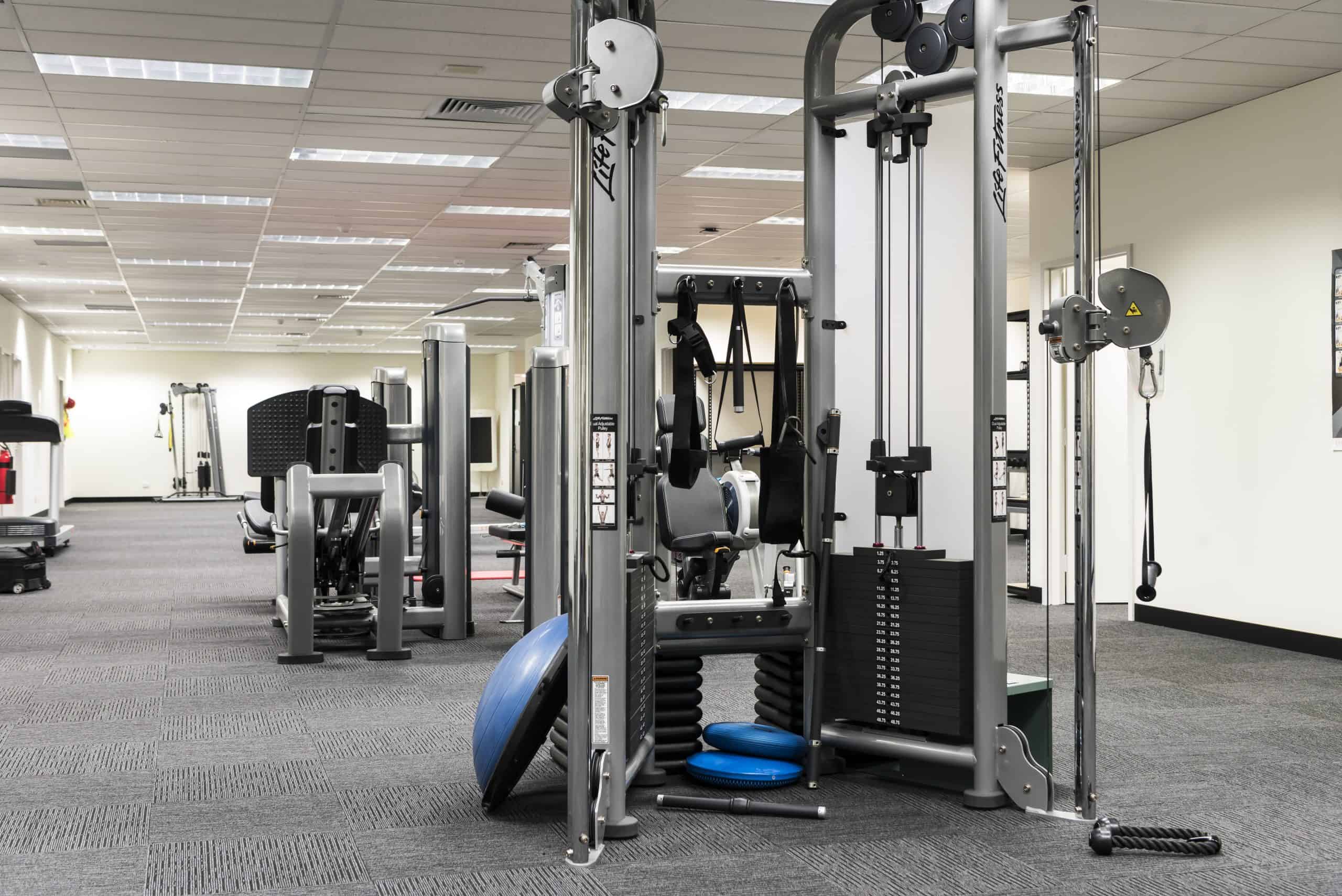Physiotherapy
Prevent and treat musculoskeletal conditions like lower back pain, arthritis, and repetitive strain injuries.
Trusted by leading Australian employers.










Treat Musculoskeletal Conditions
Over 78% of all serious workers’ compensation claims relate to musculoskeletal conditions.
Those can range from repetitive strain injuries like tennis elbow to chronic conditions like lower back pain.
And, often, the most effective care involves physiotherapy interventions that focus on strengthening and de-tensioning muscle and enhancing blood flow.
Our APC-accredited physiotherapy team plays a critical role in accelerating worker recovery and maximising functional capacity, including in post-operative scenarios.
They also help manage workplace risks through various preventive programs – including ergonomic evaluations.
We Manage Common Workplace Injuries
Do You Need Exercise Rehabilitation Services?
At RediMed, our exercise rehabilitation service is designed to comprehensively address the functional capacity of patients who have sustained an injury, and get them back to their duties as efficiently as possible.
The best part? You don’t need to go anywhere else, we’ve got you covered.
Post-Operative Rehabilitation
After surgery, getting an employee back to work efficiently requires the right rehabilitation plan.
Surgery is an incredibly traumatic process for the body and, even if there are no complications, it can lead to muscle weakness, chronic pain, reduced range of motion, and an overall reduction in functionality.
Post-operative rehabilitation aims to manage those effects.
Typically, our physiotherapists incorporate strengthening and balance exercises to restore function – other modalities, like scar tissue management, are integrated on a case-by-case basis.




Early Intervention Programs
Many musculoskeletal conditions aren’t the result of a single traumatic incident.
Instead, they’re a culmination of repeated stress, a diagnostic threshold that gets crossed when your worker experiences one too many symptoms.
Ideally, health conditions should be prevented through good risk management – and, if they can’t be, they should be detected and managed as quickly as possible.
Our early intervention programs are designed to target minor symptoms like aches, stiffness and pain before they affect functional capacity.
The result: less severe conditions, fewer compensation claims, and lower ancillary costs (like time off work).
Find out how early intervention programs can be implemented as part of periodic assessments and other health and wellness initiatives.
Why Choose RediMed?
Through careful assessment, your specific needs, risks and requirements are identified and managed by your dedicated customer relationship manager.
Our experienced physiotherapists provide personalised treatment and rehabilitation plans that are designed to optimise recovery outcomes.
Our team of allied health professionals span across all our clinics in Western Australia and Queensland, and are also able to service patients onsite at your wokplace.
Our physiotherapists work alongside some of the most well regarded medical practitioners and orthopaedic surgeons in Australia to provide a premium standard of care.
Physiotherapy In A Holistic Care Model
Physiotherapists rarely work in isolation.
Often, patients will receive care from doctors and specialists too – and, if that care is delivered by different providers, the patient journey can become fragmented.
Costs blow out, referrals and bookings take time, and the patient is forced to communicate information between different parties, which can lead to less effective care.
That’s why our physiotherapists work exclusively in multidisciplinary teams.
If one of your workers is injured, your dedicated relationship manager will assign them a clinical case manager (normally, one of our doctors), who will then orchestrate diagnosis and treatment by composing a care team of different specialist and allied health practitioners.
The result: each worker receives the care they need as quickly and cost-effectively as possible, leading to better clinical outcomes.


How Our Physiotherapists Work
The first point of contact in the diagnostic process will normally be one of our doctors or occupational physicians.
Depending on the nature of the condition, our specialists and physiotherapists may also be involved.
If the condition has been caused by work, we’ll issue a diagnostic and prognostic report and a first certificate of capacity.
Following diagnosis, your worker’s assigned clinical case manager (normally a doctor) will develop a return-to-work treatment plan.
We’ll also liaise with you and your insurer to coordinate the medicolegal aspects of your worker’s injury, such as developing a return-to-work program.
Once a plan has been established, your worker’s care team will start treatment, which can include exercise-based, environmental, pharmacological, and surgical interventions.
At predetermined intervals, we’ll review your worker’s recovery progress and issue progress certificates of capacity.
Physiotherapy FAQs
A physiotherapist is an allied healthcare practitioner who is accredited by the Australian Physiotherapy Council (which sits under AHPRA). They’re qualified to diagnose and treat musculoskeletal conditions such as soft tissue damage, broken bones, damaged joints, ligaments and tendons, arthritis, and repetitive strain injuries.
Work hardening – also known as physical conditioning – is the process of gradually increasing a worker’s physical capacity. It’s designed to help new and returning workers adapt to physically demanding roles that would otherwise have a high risk of injury.
Most work hardening programs involve a combination of load reduction (the worker undertakes less work than normally required in that role), physical training, and simulated exercises. For example, a returning road construction worker with a shoulder condition might unload less equipment than normal on site; outside of work, they might undergo resistance and flexibility training to strengthen the shoulder joint and load/unload equipment under the supervision of a physio.
Physiotherapists have a broad range of modalities at their disposal. These include:
- cryotherapy and thermotherapy
- dry needling
- electrotherapy
- exercise therapy, including strength and balance training
- gait and motion retraining
- hydrotherapy
- joint mobilisations
- neural mobilisations
- postural training
- soft tissue mobilisations, like massage and myofascial release
- spinal mobilisations
- stretches
Depending on the requirements our physiotherapists will enlist the assistance of our exercise physiologists to help create and implement work hardening programs (which can help prevent injuries in new and returning workers), ergonomic evaluations (which involve on-site assessments of work stations and activities to screen for musculoskeletal injury risks), and job dictionary drafting (which can help identify role-specific injury risks).

